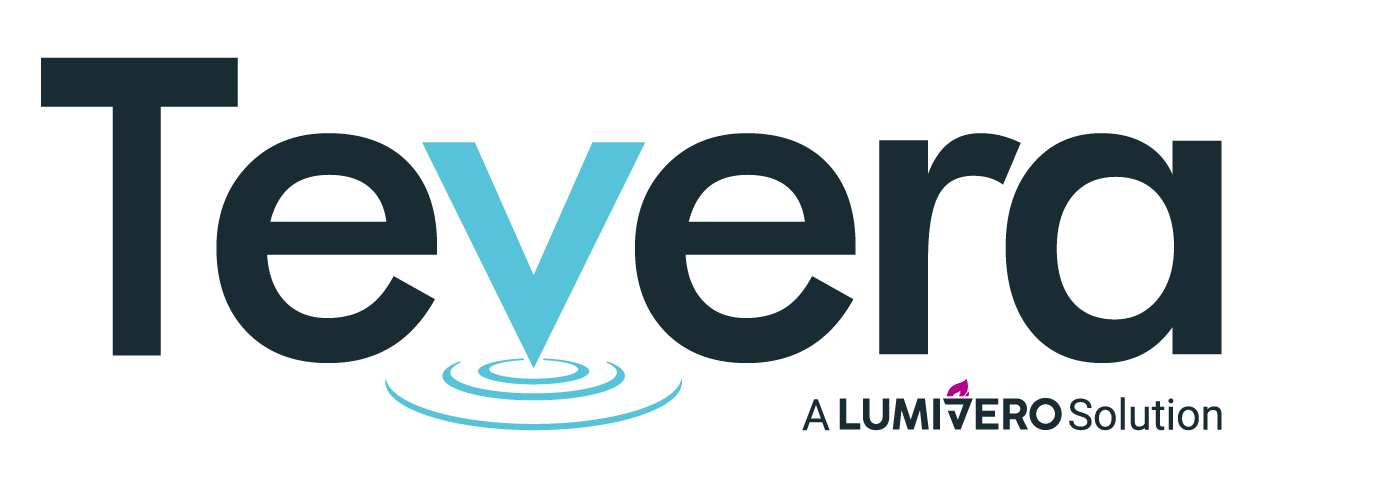CSWE Accreditation Requirements and Standards
The Council on Social Work Education (CSWE) is the primary accreditation board for bachelor’s and master’s level Social Work programs throughout the United States. As opposed to accrediting students within a program, the CSWE is responsible for granting accreditation to the program itself, as well as the university that offers it.
What is a CSWE-accredited program and what is CSWE accreditation? In this article, we’ll explore how to achieve and maintain CSWE accreditation, as well as the CSWE processes and goals.
What is CSWE Accreditation?
The CSWE has five goals that the organization endeavors to adhere to in its own right and when accrediting the programs provided by institutions of higher learning. Accreditation ensures that students enrolled in social work programs will complete their field experience and achieve the desired program outcomes with the necessary skills to start meaningful work and perform at the highest level within the profession.
Successful accreditation occurs when the CSWE or similar outside agency conducts a rigorous evaluation process on a university. The purpose of the evaluation is to determine whether or not the university meets the required education standards. The CSWE’s goal is to evaluate the efficacy of bachelor of social work (BSW) and master of social work (MSW) programs and confirm that they meet the minimum educational standards.
The CSWE Educational Policy and Accreditation Standards (EPAS) ensure that students, program directors, administrators and faculty field supervisors can be confident in the quality of the assessments, coursework and graduation criteria. Accredited programs have been independently examined and found to offer an acceptable standard of education for enrolled students.
One of the aims of the CSWE accreditation program is to position student candidates for the following:
- Licensing: In some cases, state licensing boards require that candidates obtain social work degrees from a CSWE-accredited social work program to qualify for a licensing exam.
- Employment opportunity: A number of employers insist on social work degrees with CSWE-accredited programs.
- Advanced standing: Students must have a bachelor’s degree from a CSWE program to qualify for advanced standing in accredited graduate social work programs.
CSWE Accreditation Standards Categories
Program mission and goals
Explicit curriculum
Implicit curriculum
Assessment
CSWE Accreditation Requirements and Standards
The process by which universities receive CSWE accreditation is both rigorous and exhaustive. For the CSWE to effectively ascertain whether the university is providing an acceptable standard of education, it must cover all the elements involved in the program and ensure that each meets the minimum requirements.
Broadly speaking, any campus-based or online master’s or bachelor’s program attempting to gain CSWE accreditation must meet at least the minimum standards in four categories:
- Program mission and goals
- Explicit curriculum, including core competencies, ethical principles and critical thinking
- Implicit curriculum, including student development, faculty and diversity
- Assessment
Core Competencies
Within the explicit curriculum, the CSWE has devised a list of core social work program evaluation competencies. These core competencies ensure that students who have completed all aspects of their qualifications are entirely prepared to start their social work careers. All core competencies align with the broader social work ethics and goals. These core competencies include the following:
- Demonstrate ethical and professional behavior
- Engage diversity and difference in practice
- Advance human rights and social, environmental and economic justice
- Engage in practice-informed research and research-informed practice
- Engage in policy practice
- Engage with individuals, families, groups, organizations and communities
- Assess individuals, families, groups, organizations and communities
- Intervene with individuals, families, groups, organizations and communities
- Evaluate practice with individuals, families, groups, organizations and communities
In many ways, CSWE is at the heart of social work education. They set standards and evaluate educational outcomes. In doing so, they ensure that every new graduate with a CSWE certification has received a quality education and can put it into practice in their chosen profession.
Field Experience
Field experience exists to connect theory and practice in students’ minds and is, therefore, one of the cornerstones in CSWE evaluations. The connection between social work theory and practical work must be identifiable and efficacious. Baccalaureate programs must grant students a minimum of 400 hours of field experience and master’s programs a minimum of 900 hours. These hours and the accompanying learning outcomes must be carefully logged to meet CSWE reporting standards.
How Tevera Helps Colleges Earn and Maintain CSWE Accreditation
Tevera provides a hub where students, administrators and faculty leadership can streamline their processes and aim for the necessary results to earn and maintain CSWE accreditation. With Tevera, your institution can maximize the success of its students and programs in the following areas:
- Field experience: Tevera can help you elevate agency management and eliminate student placement complications. You’ll also have a central hub to store field experience data. This allows for ease of report generation and achievement of programmatic outcomes.
- Program outcome management: Manage all your key assessment outcomes throughout your entire program in one place. Centralizing your data allows for actionable insights to further your programmatic excellence in the field of social work.
- Time and activity tracking: Tevera provides an easy method to ensure students meet all the time and activity requirements for graduation. You can also verify that students meet — or surpass — the required standard set by your institution.
- Standards management: Ensuring that standards are met across the program can be challenging. With Tevera, you can deliver rubrics across multiple sets of standards, including accreditation standards and report on data based on every assessment method to demonstrate your program is meeting accreditation requirements.
- Student focus: Focusing squarely on the administrative aspects of accreditation cannot come at the cost of the students. Tevera will help you to achieve accreditation while working hand in hand with the student body for the best possible result in all academic spheres.
CSWE Accreditation Reporting
All universities are required to measure student learning outcomes and then compile and submit extensive reports to meet CSWE accreditation standards. Should students fail to meet the program’s competency benchmarks, the program’s effectiveness could be called into question. The purpose of CSWE reporting is to measure whether or not students are mastering the core competencies to a satisfactory level.
Reports also function as a method of communicating student outcomes to the public. The university must publish these forms on their website and ensure they meet the minimum requirement of updating them every two years. The reporting process aims to ensure that students are still receiving the best education and are adequately prepared to work in the field after they’ve completed their studies.
Simplify CSWE Accreditation With Tevera
It’s not easy to achieve CSWE accreditation. The CSWE has molded its accreditation process around students becoming leaders in their chosen field and at Tevera, we’re driven by student competence development and the lasting impact they will make on their communities as professionals.
Whether you’re attempting to get accreditation in the pre-candidacy or candidacy phase or already have accreditation and would like to streamline your field management processes and assessment of student learning outcomes, Tevera can help you. We will provide you with intuitive interfaces and simplified reporting systems to ensure your data collection and reporting processes are as straightforward as possible.
With all the reporting mechanisms at your fingertips, Tevera can also help elevate your students’ success by keeping their needs at heart. Implementing the Tevera system benefits everyone, from deans and administrators to students and faculty managers.
If you’d like to learn more about how to streamline your field program management and reporting systems, please feel free to schedule an overview of our services today.
Interested in Learning About Other Accreditation Bodies Tevera Supports?
SOLUTIONS
RELATED POSTS
PRODUCT OVERVIEW
See how Tevera can elevate your program.
CSWE Accreditation Requirements and Standards
The Council on Social Work Education (CSWE) is the primary accreditation board for bachelor’s and master’s level Social Work programs throughout the United States. As opposed to accrediting students within a program, the CSWE is responsible for granting accreditation to the program itself, as well as the university that offers it.
What is a CSWE-accredited program and what is CSWE accreditation? In this article, we’ll explore how to achieve and maintain CSWE accreditation, as well as the CSWE processes and goals.
What is CSWE Accreditation?
The CSWE has five goals that the organization endeavors to adhere to in its own right and when accrediting the programs provided by institutions of higher learning. Accreditation ensures that students enrolled in social work programs will complete their field experience and achieve the desired program outcomes with the necessary skills to start meaningful work and perform at the highest level within the profession.
Successful accreditation occurs when the CSWE or similar outside agency conducts a rigorous evaluation process on a university. The purpose of the evaluation is to determine whether or not the university meets the required education standards. The CSWE’s goal is to evaluate the efficacy of bachelor of social work (BSW) and master of social work (MSW) programs and confirm that they meet the minimum educational standards.
The CSWE Educational Policy and Accreditation Standards (EPAS) ensure that students, program directors, administrators and faculty field supervisors can be confident in the quality of the assessments, coursework and graduation criteria. Accredited programs have been independently examined and found to offer an acceptable standard of education for enrolled students.
One of the aims of the CSWE accreditation program is to position student candidates for the following:
- Licensing: In some cases, state licensing boards require that candidates obtain social work degrees from a CSWE-accredited social work program to qualify for a licensing exam.
- Employment opportunity: A number of employers insist on social work degrees with CSWE-accredited programs.
- Advanced standing: Students must have a bachelor’s degree from a CSWE program to qualify for advanced standing in accredited graduate social work programs.
CSWE Accreditation Standards Categories
Program mission and goals
Explicit curriculum
Implicit curriculum
Assessment
CSWE Accreditation Requirements and Standards
The process by which universities receive CSWE accreditation is both rigorous and exhaustive. For the CSWE to effectively ascertain whether the university is providing an acceptable standard of education, it must cover all the elements involved in the program and ensure that each meets the minimum requirements.
Broadly speaking, any campus-based or online master’s or bachelor’s program attempting to gain CSWE accreditation must meet at least the minimum standards in four categories:
- Program mission and goals
- Explicit curriculum, including core competencies, ethical principles and critical thinking
- Implicit curriculum, including student development, faculty and diversity
- Assessment
Core Competencies
Within the explicit curriculum, the CSWE has devised a list of core social work program evaluation competencies. These core competencies ensure that students who have completed all aspects of their qualifications are entirely prepared to start their social work careers. All core competencies align with the broader social work ethics and goals. These core competencies include the following:
- Demonstrate ethical and professional behavior
- Engage diversity and difference in practice
- Advance human rights and social, environmental and economic justice
- Engage in practice-informed research and research-informed practice
- Engage in policy practice
- Engage with individuals, families, groups, organizations and communities
- Assess individuals, families, groups, organizations and communities
- Intervene with individuals, families, groups, organizations and communities
- Evaluate practice with individuals, families, groups, organizations and communities
In many ways, CSWE is at the heart of social work education. They set standards and evaluate educational outcomes. In doing so, they ensure that every new graduate with a CSWE certification has received a quality education and can put it into practice in their chosen profession.
Field Experience
Field experience exists to connect theory and practice in students’ minds and is, therefore, one of the cornerstones in CSWE evaluations. The connection between social work theory and practical work must be identifiable and efficacious. Baccalaureate programs must grant students a minimum of 400 hours of field experience and master’s programs a minimum of 900 hours. These hours and the accompanying learning outcomes must be carefully logged to meet CSWE reporting standards.
How Tevera Helps Colleges Earn and Maintain CSWE Accreditation
Tevera provides a hub where students, administrators and faculty leadership can streamline their processes and aim for the necessary results to earn and maintain CSWE accreditation. With Tevera, your institution can maximize the success of its students and programs in the following areas:
- Field experience: Tevera can help you elevate agency management and eliminate student placement complications. You’ll also have a central hub to store field experience data. This allows for ease of report generation and achievement of programmatic outcomes.
- Program outcome management: Manage all your key assessment outcomes throughout your entire program in one place. Centralizing your data allows for actionable insights to further your programmatic excellence in the field of social work.
- Time and activity tracking: Tevera provides an easy method to ensure students meet all the time and activity requirements for graduation. You can also verify that students meet — or surpass — the required standard set by your institution.
- Standards management: Ensuring that standards are met across the program can be challenging. With Tevera, you can deliver rubrics across multiple sets of standards, including accreditation standards and report on data based on every assessment method to demonstrate your program is meeting accreditation requirements.
- Student focus: Focusing squarely on the administrative aspects of accreditation cannot come at the cost of the students. Tevera will help you to achieve accreditation while working hand in hand with the student body for the best possible result in all academic spheres.
CSWE Accreditation Reporting
All universities are required to measure student learning outcomes and then compile and submit extensive reports to meet CSWE accreditation standards. Should students fail to meet the program’s competency benchmarks, the program’s effectiveness could be called into question. The purpose of CSWE reporting is to measure whether or not students are mastering the core competencies to a satisfactory level.
Reports also function as a method of communicating student outcomes to the public. The university must publish these forms on their website and ensure they meet the minimum requirement of updating them every two years. The reporting process aims to ensure that students are still receiving the best education and are adequately prepared to work in the field after they’ve completed their studies.
Simplify CSWE Accreditation With Tevera
It’s not easy to achieve CSWE accreditation. The CSWE has molded its accreditation process around students becoming leaders in their chosen field and at Tevera, we’re driven by student competence development and the lasting impact they will make on their communities as professionals.
Whether you’re attempting to get accreditation in the pre-candidacy or candidacy phase or already have accreditation and would like to streamline your field management processes and assessment of student learning outcomes, Tevera can help you. We will provide you with intuitive interfaces and simplified reporting systems to ensure your data collection and reporting processes are as straightforward as possible.
With all the reporting mechanisms at your fingertips, Tevera can also help elevate your students’ success by keeping their needs at heart. Implementing the Tevera system benefits everyone, from deans and administrators to students and faculty managers.
If you’d like to learn more about how to streamline your field program management and reporting systems, please feel free to schedule an overview of our services today.
Interested in Learning About Other Accreditation Bodies Tevera Supports?
CSWE Accreditation Requirements and Standards
The Council on Social Work Education (CSWE) is the primary accreditation board for bachelor’s and master’s level Social Work programs throughout the United States. As opposed to accrediting students within a program, the CSWE is responsible for granting accreditation to the program itself, as well as the university that offers it.
What is a CSWE-accredited program and what is CSWE accreditation? In this article, we’ll explore how to achieve and maintain CSWE accreditation, as well as the CSWE processes and goals.
What is CSWE Accreditation?
The CSWE has five goals that the organization endeavors to adhere to in its own right and when accrediting the programs provided by institutions of higher learning. Accreditation ensures that students enrolled in social work programs will complete their field experience and achieve the desired program outcomes with the necessary skills to start meaningful work and perform at the highest level within the profession.
Successful accreditation occurs when the CSWE or similar outside agency conducts a rigorous evaluation process on a university. The purpose of the evaluation is to determine whether or not the university meets the required education standards. The CSWE’s goal is to evaluate the efficacy of bachelor of social work (BSW) and master of social work (MSW) programs and confirm that they meet the minimum educational standards.
The CSWE Educational Policy and Accreditation Standards (EPAS) ensure that students, program directors, administrators and faculty field supervisors can be confident in the quality of the assessments, coursework and graduation criteria. Accredited programs have been independently examined and found to offer an acceptable standard of education for enrolled students.
One of the aims of the CSWE accreditation program is to position student candidates for the following:
- Licensing: In some cases, state licensing boards require that candidates obtain social work degrees from a CSWE-accredited social work program to qualify for a licensing exam.
- Employment opportunity: A number of employers insist on social work degrees with CSWE-accredited programs.
- Advanced standing: Students must have a bachelor’s degree from a CSWE program to qualify for advanced standing in accredited graduate social work programs.
CSWE Accreditation Standards Categories
Program mission and goals
Explicit curriculum
Implicit curriculum
Assessment
CSWE Accreditation Requirements and Standards
The process by which universities receive CSWE accreditation is both rigorous and exhaustive. For the CSWE to effectively ascertain whether the university is providing an acceptable standard of education, it must cover all the elements involved in the program and ensure that each meets the minimum requirements.
Broadly speaking, any campus-based or online master’s or bachelor’s program attempting to gain CSWE accreditation must meet at least the minimum standards in four categories:
- Program mission and goals
- Explicit curriculum, including core competencies, ethical principles and critical thinking
- Implicit curriculum, including student development, faculty and diversity
- Assessment
Core Competencies
Within the explicit curriculum, the CSWE has devised a list of core social work program evaluation competencies. These core competencies ensure that students who have completed all aspects of their qualifications are entirely prepared to start their social work careers. All core competencies align with the broader social work ethics and goals. These core competencies include the following:
- Demonstrate ethical and professional behavior
- Engage diversity and difference in practice
- Advance human rights and social, environmental and economic justice
- Engage in practice-informed research and research-informed practice
- Engage in policy practice
- Engage with individuals, families, groups, organizations and communities
- Assess individuals, families, groups, organizations and communities
- Intervene with individuals, families, groups, organizations and communities
- Evaluate practice with individuals, families, groups, organizations and communities
In many ways, CSWE is at the heart of social work education. They set standards and evaluate educational outcomes. In doing so, they ensure that every new graduate with a CSWE certification has received a quality education and can put it into practice in their chosen profession.
Field Experience
Field experience exists to connect theory and practice in students’ minds and is, therefore, one of the cornerstones in CSWE evaluations. The connection between social work theory and practical work must be identifiable and efficacious. Baccalaureate programs must grant students a minimum of 400 hours of field experience and master’s programs a minimum of 900 hours. These hours and the accompanying learning outcomes must be carefully logged to meet CSWE reporting standards.
How Tevera Helps Colleges Earn and Maintain CSWE Accreditation
Tevera provides a hub where students, administrators and faculty leadership can streamline their processes and aim for the necessary results to earn and maintain CSWE accreditation. With Tevera, your institution can maximize the success of its students and programs in the following areas:
- Field experience: Tevera can help you elevate agency management and eliminate student placement complications. You’ll also have a central hub to store field experience data. This allows for ease of report generation and achievement of programmatic outcomes.
- Program outcome management: Manage all your key assessment outcomes throughout your entire program in one place. Centralizing your data allows for actionable insights to further your programmatic excellence in the field of social work.
- Time and activity tracking: Tevera provides an easy method to ensure students meet all the time and activity requirements for graduation. You can also verify that students meet — or surpass — the required standard set by your institution.
- Standards management: Ensuring that standards are met across the program can be challenging. With Tevera, you can deliver rubrics across multiple sets of standards, including accreditation standards and report on data based on every assessment method to demonstrate your program is meeting accreditation requirements.
- Student focus: Focusing squarely on the administrative aspects of accreditation cannot come at the cost of the students. Tevera will help you to achieve accreditation while working hand in hand with the student body for the best possible result in all academic spheres.
CSWE Accreditation Reporting
All universities are required to measure student learning outcomes and then compile and submit extensive reports to meet CSWE accreditation standards. Should students fail to meet the program’s competency benchmarks, the program’s effectiveness could be called into question. The purpose of CSWE reporting is to measure whether or not students are mastering the core competencies to a satisfactory level.
Reports also function as a method of communicating student outcomes to the public. The university must publish these forms on their website and ensure they meet the minimum requirement of updating them every two years. The reporting process aims to ensure that students are still receiving the best education and are adequately prepared to work in the field after they’ve completed their studies.
Simplify CSWE Accreditation With Tevera
It’s not easy to achieve CSWE accreditation. The CSWE has molded its accreditation process around students becoming leaders in their chosen field and at Tevera, we’re driven by student competence development and the lasting impact they will make on their communities as professionals.
Whether you’re attempting to get accreditation in the pre-candidacy or candidacy phase or already have accreditation and would like to streamline your field management processes and assessment of student learning outcomes, Tevera can help you. We will provide you with intuitive interfaces and simplified reporting systems to ensure your data collection and reporting processes are as straightforward as possible.
With all the reporting mechanisms at your fingertips, Tevera can also help elevate your students’ success by keeping their needs at heart. Implementing the Tevera system benefits everyone, from deans and administrators to students and faculty managers.
If you’d like to learn more about how to streamline your field program management and reporting systems, please feel free to schedule an overview of our services today.





















